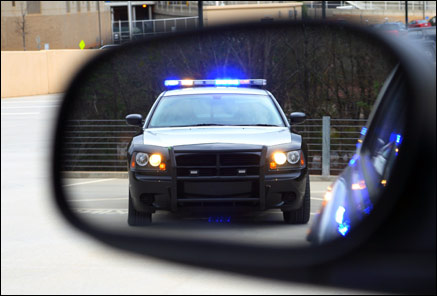Essentially, the new set of laws simply adds the following language to many sections of the Virginia Code: “No law-enforcement officer shall stop a motor vehicle for a violation of this section. No evidence discovered or obtained as the result of a stop in violation of this subsection, including evidence discovered or obtained with the operators consent, shall be admissible in any trial, hearing, or other proceeding.” The code substitutes “a pedestrian” for “a motor vehicle” in the statues that apply to pedestrians.
The Virginia Assembly did not decriminalize the conduct, it only said the officer could not stop a driver for said conduct. If the officer stops you for a different purpose and sees that you are in violation of that law, he or she can still issue you a summons for the violation.
This is critically important because one of the primary ways police officers find serious offenders is through routine traffic stops. Typically, a police officer will see the broken taillight and then, upon pulling the driver over, discover a more serious offense, like drugs or illegal firearms. It is very likely that the number of serious offenders being apprehended will decline because of this new set of laws.
As of March 1, 2021, a police officer can no longer stop you for:
- Code section 18.2-250.1. The smell of marijuana.
- Code section 46.2-334.01. Violations related to learner’s permits and underaged drivers.
- Code section 46.2-646. Expiration and renewal of registration.
- Code section 46.2-810.1. Smoking in a vehicle with a minor present
- Code section 46.2-923. How and where pedestrians to cross highways.
- Code section 46.2-926. Pedestrians stepping into highways where they can not be seen.
- Code section 46.2-1003. Illegal use of defective and unsafe equipment.
- Code section 46.2-1013. Tail lights.
- code section 46.2-1014. Brake lights.
- Code section 46.2-1014.1. Supplemental high mount stop light.
- Code section 46.2-1049. Exhaust System in good working order.
- Code section 46.2-1052. Tinting films, signs, decals, and stickers on windshields.
- Code section 46.2-1054. Suspension of objects or alterations of vehicle so as to obstruct the drivers view.
- Code section 46.2-1094. Occupants of front seats of motor vehicles required to use safety lap belts and shoulder harnesses
- Code section 46.2-1157. Inspection of motor vehicles required.
- Code section 46.2-1300. Powers of local authorities generally; erection of signs and markers; maximum penalties.
In other words, after March 1, 2021 a police officer will not be able to stop you for any of the foregoing reasons. But if he stops you for something else, then he could issue a summons for violating any one of these laws. The first draft of the bill prohibited a law enforcement officer from stopping a driver for driving at night without headlights. However, the Governor changed the language to include, “. . . except that a law-enforcement officer may stop a vehicle if it displays no lighted headlights during the time periods . . .” So, when you are driving at night, you must still use your headlights and if you do not, then you may be pulled over by law-enforcement.
The enactment of this legislation will undoubtedly lead to far fewer summons being issued for minor traffic offenses. It may lead to far fewer serious offenders being apprehended. I really like the idea that I will not be bothered by an officer for a minor traffic violation. However, if over the next ten years, we see a dramatic spike in the rate of serious crimes here in Virginia, then it may be as a direct result of this new law. But, if serious crime does not increase over the next ten years, then maybe, in retrospect, I will be able to say the Virginia Assembly got this one right.


